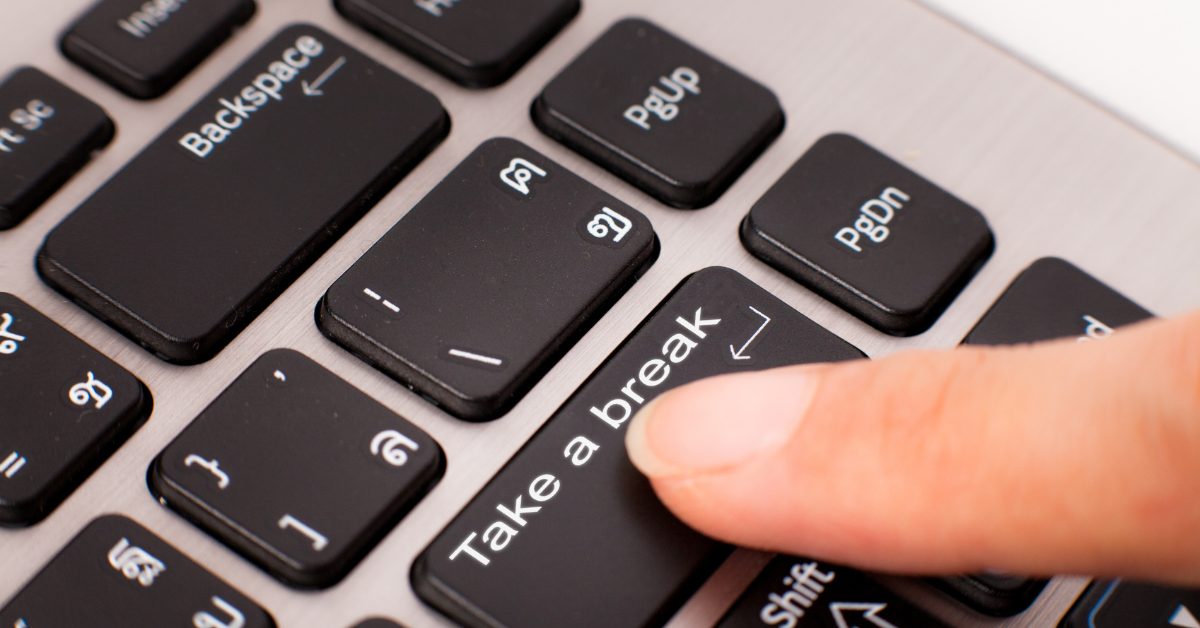After a relaxing holiday break that included spending precious time with family and friends, I felt renewed and ready to jump back into the swing of things. I actually felt like I missed work, my routine, and being productive.
I’ve realized that in today’s fast-paced, always-connected society, taking the time to sharpen the saw is critically important.
It’s about allowing yourself to have downtime and removing yourself—mentally and physically—from your regular routine.
Why does downtime matter so much?
It matters because it gives you the opportunity to:
- Connect and reconnect with people, outside of work, who give meaning to your life. This will allow you to relax and take work out of the equation for a while.
- Rest and get a little more shut-eye. Lost sleep cannot be regained and when you don’t get enough sleep your productivity can decline. Remember to give sleep a chance to rejuvenate your body and refuel your mind.
- Refresh your perspective. When you step away from your routine, you become more aware of your thoughts and you’re then, able to identify solutions to your challenges and uncover creative insights that might change your direction.
The benefits of downtime have been well documented. Some of my go-to references include:
- The Hidden Driver of Excellence, where author Daniel Goleman describes a Harvard Business School study of 238 members of creative project teams. Goleman observes that being successful in this type of work required innovation, small wins that were consistently discovered, and, in order to achieve this, it was crucial for people to have enough protected time to think freely. Also, in acknowledging the 24/7 information overload that comes at us on a daily basis, Goleman states, “We do well to unplug regularly; quiet time restores our focus and composure.”
- The NeuroLeadership Institute confirms that we all need sufficient downtime as it give our brains’ neural circuitry time to recover after intense periods of activity. They also identify another critical ingredient to a healthy mind… having connection time where we can be social with others enhances our well-being.
- Tony Schwartz of The Energy Project, states, “How much of your capacity you bring to work on any given day depends, to a large degree, on how much energy you’ve got in your tank. Obvious as that seems, we underestimate how much impact taking care of ourselves—and feeling taken care of—has on our performance. Unlike machines, which run on a single source of energy, human beings require four types of fuel to perform at their best: physical, emotional, mental and spiritual. Each of these influences one another, and none is sufficient by itself.”
It’s time to start taking the steps, even if they are small, to finding and scheduling downtime.
I’ve taken the advice of Judi Hughes, Your Planning Partners, and have already planned my vacation time for the year. In addition, I’ve tacked on an extra day to the already existing long- weekends.
To help you create downtime daily, I give you my best tips
- Use a work plan to maintain focus in the midst of distraction.
- Disconnect electronic notifications when you need “think” time or have work requiring greater focus.
- Take time to spend in nature, even if it’s just a short walk.
- Pay attention to how you breathe.
- Meditate, if even for a brief time.
And finally, become a master, not a servant to your time.



